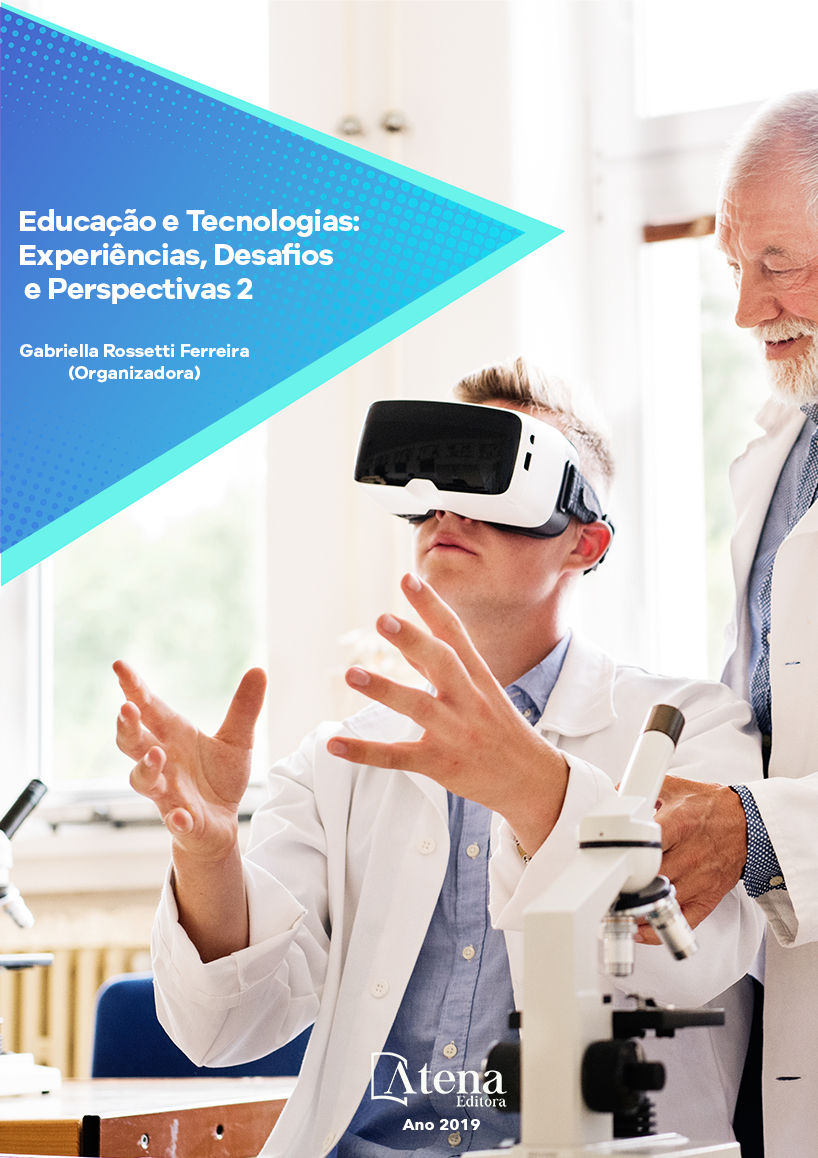
O ENSINO HÍBRIDO COMO ESTRATÉGIA DE ENSINO NA EDUCAÇÃO SUPERIOR
Ensino híbrido é um método
pedagógico que integra os pontos fortes do
ambiente de sala de aula tradicional no mundo
físico e as atividades de aprendizagem na
Internet no ambiente de aprendizagem virtual.
Para tanto, este artigo tem por objetivo descrever
as experiências acadêmicas utilizando o
ensino híbrido como metodologia de ensino. A
abordagem é qualitativa, descritiva e de revisão
bibliográfica. A busca pelos artigos foi realizada
no período de agosto de 2017 a janeiro de 2018
na base de dados internacional, ERIC com
os seguintes descritores “blended learning”
e “university” e “undergraduate students”
encontrando 75 (setenta e cinco) artigos. Os
critérios de exclusão dos artigos foram: artigos
de revisão e artigos publicados no Congresso
CELDA. Dessa forma, foram analisados 10
(dez) artigos publicados na Oceania, Ásia,
Europa, África e América do Norte. Sendo
assim, os estudos foram organizados em
duas categorias, dentre eles: Categoria 1:
Ensino híbrido como ferramenta pedagógica e
Categoria 2: Metodologias do ensino híbrido.
O ensino híbrido é uma metodologia eficaz a
ser explorada pelas instituições de ensino e
estimuladas a seus professores, uma vez que
foi evidenciado em diversos estudos a eficácia
dos resultados obtidos pelos alunos por meio
dessa estratégia metodológica. Vale ressaltar
que existem diversos instrumentos que podem
ser utilizados no ensino híbrido: ambiente virtual,
telefone celular, aplicativos e redes sociais. E
o professor deve identificar a plataforma que
melhor integra os saberes discutidos e os seus
alunos.
O ENSINO HÍBRIDO COMO ESTRATÉGIA DE ENSINO NA EDUCAÇÃO SUPERIOR
-
DOI: 10.22533/at.ed.75319180414
-
Palavras-chave: Ensino Híbrido. Ensino Superior. Experiências Acadêmicas.
-
Keywords: Blended Learning. Higher Education. Academic Experiences.
-
Abstract:
Blended learning is a pedagogical
method that integrates the strengths of the
traditional classroom environment in the
physical world and the learning activities on
the Internet in the virtual learning environment.
To this end, this article aims to describe the
academic experiences using blended learning
as a teaching methodology. The approach is
qualitative, descriptive and bibliographic review. The search for the articles was carried
out in the period from August 2017 to January 2018 in the international database, ERIC
with the following descriptors “Blended learning “ and “university” and “undergraduate
students “ Finding 75 (75) articles. The exclusion criteria of the articles were: review
articles and articles published in the Celda Congress. In this way, ten (10) articles
published in Oceania, Asia, Europe, Africa and North America were analyzed. Thus, the
studies were organized into two categories, among them: Category 1: Hybrid teaching
as a pedagogical tool and category 2: Methodologies of blended learning. Blended
learning is an effective methodology to be explored by educational institutions and
stimulated to their teachers, since it was evidenced in several studies the efficacy of the
results obtained by the students through this methodological strategy. It is noteworthy
that there are several instruments that can be used in the blended learning: virtual
environment, mobile phone, applications and social networks. And the teacher should
identify the platform that best integrates the knowledge discussed and its students.
-
Número de páginas: 15
- Pedro Pascoal Sava
- Bruno Matos de Farias
- Ana Cecília Machado Dias
- Helena Portes Sava de Farias


